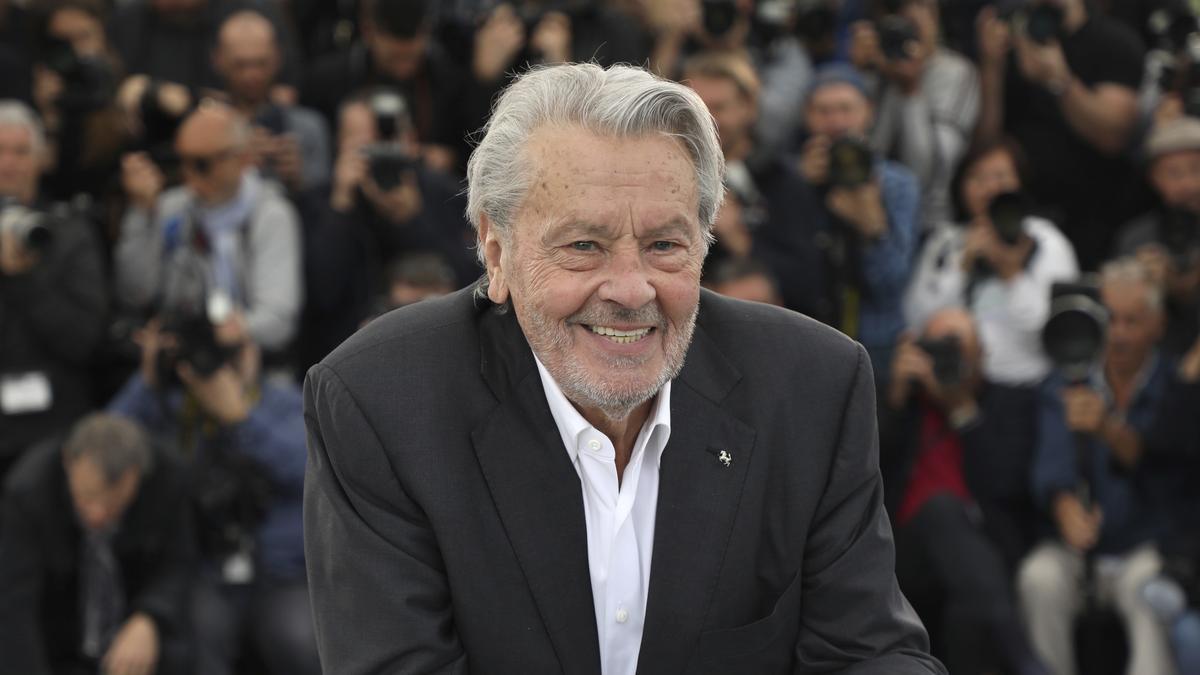
Alain Delon, the illustrious French actor whose magnetic presence captivated global audiences and filmmakers alike, has passed away at the age of 88, according to French media reports. Renowned for his combination of rugged toughness and tender vulnerability, Delon became one of France’s most memorable leading men, leaving a permanent mark on the international film industry. His children announced his death on Sunday through the French national news agency Agence France-Presse, a customary practice in the country.
Tributes to Delon began flooding social media platforms immediately after the announcement, and major French news outlets quickly shifted their focus to celebrate his rich and varied career. Born on November 8, 1935, in Sceaux, just south of Paris, Delon had a tumultuous early life. Following his parents’ separation when he was only four years old, he was placed with a foster family and later attended a Roman Catholic boarding school. At age 17, he joined the navy and was sent to Indochina. Upon returning to France in 1956, Delon held a series of odd jobs before venturing into the acting world.
Standing out for his handsome looks and star quality, Delon rapidly ascended to fame. He first gained major acclaim in 1960 with “Plein Soleil,” directed by René Clément, where he portrayed a murderer attempting to assume the identity of his victims. His collaboration with renowned directors continued, working notably with Luchino Visconti in “Rocco and His Brothers” in 1961. In this film, Delon played a self-sacrificing brother intent on assisting his sibling, earning the film the Special Jury Prize at the Venice Film Festival.
Delon’s career hit another high with Visconti’s 1963 film “Le Guepard” (“The Leopard”), which won the Palme d’Or at the Cannes Film Festival. Throughout the 1960s and 1970s, Delon was sought after by many top directors, appearing in significant films such as Clément’s “Is Paris Burning?” which featured a screenplay by writers Gore Vidal and Francis Ford Coppola. He also starred in Jacques Deray’s “La Piscine” (“The Sinners”) and Joseph Losey’s “The Assassination of Trotsky” in 1972.
Beginning in 1968, Delon embarked on a successful career as a film producer, releasing 26 movies by 1990. His self-assurance in both his acting and producing was palpable.
. In an interview with Femme magazine in 1996, he stated, “I like to be loved the way I love myself!” This confidence mirrored his charismatic on-screen persona.
Though he continued to work into his later years, Delon grew increasingly disillusioned with the film industry, citing commercialism as a destructive force. In a 2003 edition of the newsweekly Le Nouvel Observateur, he lamented, “Money, commerce and television have wrecked the dream machine. My cinema is dead. And me, too.” Nevertheless, he kept appearing in various TV movies well into his 70s, demonstrating his enduring appeal and commitment to the craft.
Delon’s allure was unmistakable, whether he was portraying morally ambiguous protagonists or impassioned romantic leads. In 2010, he appeared in “Un mari de trop” (“One Husband Too Many”) and returned to the stage in 2011 with the play “An Ordinary Day,” performed alongside his daughter Anouchka.
In addition to his performing arts prowess, Delon was known for his business ventures and varied interests. He juggled numerous activities, from setting up a stable of trotting horses to developing a line of colognes, watches, glasses, and other accessories. He also amassed a significant collection of paintings and sculptures.
Despite facing criticism for some of his public statements, Delon’s contributions to cinema were recognized with a Palme d’Honneur at the 2019 Cannes Film Festival. This decision stirred up controversy but ultimately sealed his legacy as a significant figure in film history. During a gala event at Cannes celebrating his career, Delon remarked, “One thing I’m sure about is that if there’s something I’m proud of, really, the only thing, it’s my career.”
Delon, who once proclaimed he would never let himself be seen “old and ugly,” continued to capture hearts and minds with his enduring charm. His passing marks the end of an era in French cinema; his influence and contributions are likely to be remembered and celebrated for years to come.












